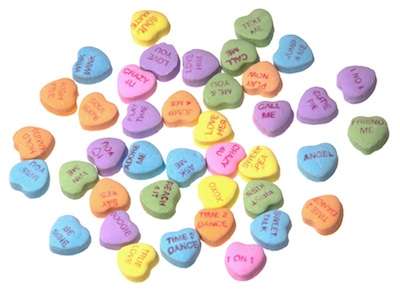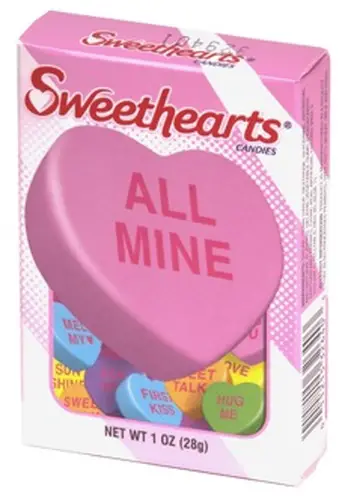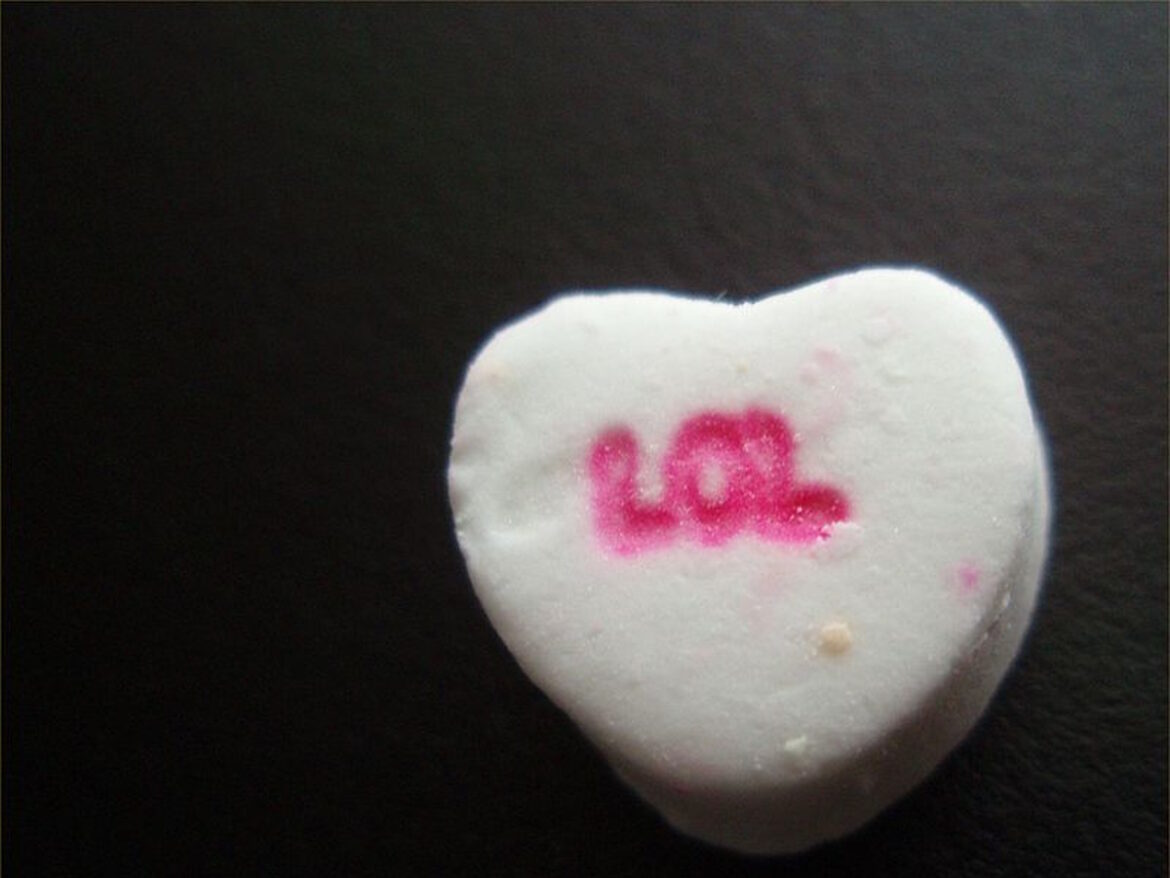Centuries before a Cambridge, Mass., candy company started making conversation hearts in 1901, British men and women exchanged ‘kissing comfits’ to sweeten the breath and perhaps ask for a kiss.
In the late 16th century, William Shakespeare mentions kissing comfits in The Merry Wives of Windsor (‘hail kissing-comfits and snow eryngoes,’ says Falstaff).
A Boston candy maker started making them around 1866, and didn’t stop for well over a century. Then, for a brief time, the conversation heart went the way of most U.S. manufacturing and disappeared.
But the story has a happy ending.
Conversation Hearts History
They were made of sugar paste with musk, civet, ambergris and orris powder and pressed into molds that had mottos on them, according to Laura Mason in Sugar-Plums and Sherbet: The Prehistory of Sweets. Sometimes candy makers printed mottos on paper and inserted them into the sugar paste. The writing then migrated onto the sugar paste. Messages on Victorian “conversation lozenges” were stamped on with dye. “How do you flirt” and “Can you polka?” were some of the racier mottos. Temperance messages like “Take Ye Not To Strong Drink” and “Honour Your Parents” also had their fans, probably from a different crowd.
Yankee cuisine typically took its cue from Great Britain, and candy was no exception. In 1847, Boston pharmacist Oliver Chase invented the first candy machine to cut lozenges from sugar paste. The lozenges, similar to Necco Wafers, were originally called “Hub Wafers,” because they were made in Boston.
In 1866, Oliver’s brother Daniel began to print witty messages on the candy with vegetable dye. People loved them at weddings, where they had such sayings as ‘Married in pink, he will take a drink.’ And “Married in White, you have chosen right.”
Their company became the New England Confectionery Company, or Necco, after a merger with two other candy companies in 1901. That year they started making heart-shaped candies with messages printed on them. (They also made conversation candies in other shapes: lozenges, horseshoes, baseballs and postcards.)
The heart-shaped ‘Sweetheart’ conversation hearts took off. Seven years after they were introduced, they appeared in the Canadian novel Anne of Green Gables, when Anne receives a pink Sweetheart saying “You are sweet.”
Necco
Necco moved to a new candy factory – the largest in the world — in Cambridge in 1927. The move heralded the golden era of candy making in Greater Boston. In 1950, Boston and Cambridge, Mass., had 140 candy companies. Main Street in Cambridge, known as ‘Confectioner’s Row,’ was lined with candy makers: James O. Welch (Junior Mints), Fox-Cross (Charleston Chew), Jack Smiley (hard candies), Graylock Confection (Tweet) and Daggett (chocolates).

SONY DSC
Most of those factories have since left. Necco’s candy making moved again to Revere, Mass., in 2003. Necco made a claim as the oldest continually operating candy company in the United States. The company made nearly 8 billion of the hearts each year from late February through mid-January of the following year.
But the sayings changed, updated to reflect the times. Gone are HEP CAT, HOTCHA, SAUCY BOY and OH YOU KID. Still around are: SAY YES, BE MINE and KISS ME.
Then in 2018, Necco shuttered its plant. Candy lovers had a brief respite when an investment firm bought the company. But soon after, the new owner shut the plant and fired all the employees.
Another company, the Spangler Candy Company, picked up the Necco wafers and Sweethearts candy lines. Valentine’s Day in 2019 and 2020 went Sweetheart-less because of problems moving equipment. Then in 2021, Sweethearts reappeared on store shelves.
As one saying goes, PURR FECT.
This story was updated in 2023. You may enjoy a related story about candy in New England here.
Images: LOL By Pschemp – Own work, CC BY-SA 3.0, https://commons.wikimedia.org/w/index.php?curid=3561363. Sweethearts box By photo taken by Evan-Amos, Fair use, https://en.wikipedia.org/w/index.php?curid=31410788.
